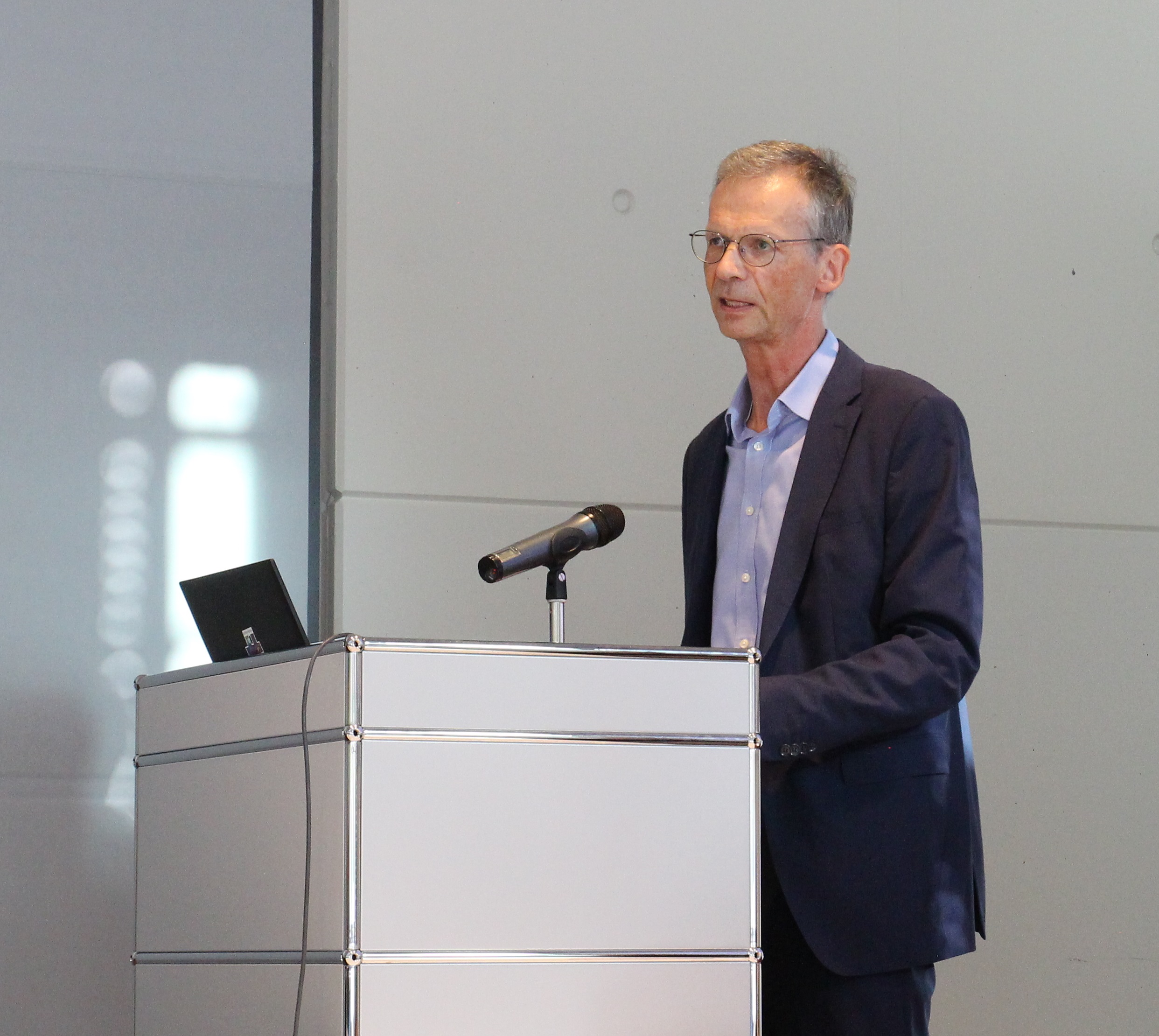"We should not aim for a comprehensive reform"
Dr. Uwe Corsepius, former Head of the European Department of the Federal Chancellery and former Secretary-General of the Council and the European Council in Brussels, lectured on the European reform debate at the Max Planck Hub Fiscal & Social State on 29 April 2024.
Dr. Uwe Corsepius has experienced and helped shape European policy for almost 30 years. In his lecture "The European Reform Debate – Remarks from European Policy Practice", he told around 60 guests which reforms he considers suitable for adapting the EU's institutional framework to current geopolitical, economic, ecological and social challenges.
Corsepius' lecture was the second in the series on the "Future of the Fiscal and Social State in the European Union", which takes place under the Max Planck Hub Fiscal & Social State umbrella. The Hub, an initiative of the Max Planck Institute for Social Law and Social Policy and the Max Planck Institute for Tax Law and Public Finance, aims to bring together social law and tax law perspectives within the framework of basic legal research.
The European Union: between enlargement and key reforms
The reform debate has gained momentum in the run-up to the European Parliament elections in June 2024 and against the tense geopolitical situation. Corsepius, who became known as European policy advisor to former German Chancellor Angela Merkel, described enlargement as "an imperative for the future of the EU". He emphasised its importance but also referred to the consequences that the joining of Ukraine, for example, would entail. The admission of countries such as the Western Balkan states, which have been waiting for years, could no longer be postponed if a country such as Ukraine acceding the circle of member states. Structural and institutional reforms of the existing EU are necessary for a successful enlargement. His plea was to focus on the feasible options in times of geopolitical turbulence. In addition to the enlargement treaties, simplified procedures would be suitable for this.
Even apparently simple and reasonable reform proposals to make the EU more effective, such as reducing the 720 seats in the European Parliament, are difficult because no country is willingly to give up seats. However, it would be much more challenging to reduce the number of Commissioners in the European Commission, as the smaller states, in particular, would not want to do without their representative. The most far-reaching proposal presented by Corsepius was the so-called "double-hat": the personal union of the President of the European Commission and the President of the European Council. That would create a direct link between the citizens and the President. However, this link would undermine the separation of powers between the institutions. The move towards a presidential system would be at the expense of the European Parliament and the European Council.
More decisions by a qualified majority?
In his presentation, Corsepius repeatedly addressed the national interests of the member states and the difficulty of uniting them under the umbrella of the EU. The EU is not a state, but at the same time, it is more than a simple intergovernmental organisation, said Corsepius. In this context, he particularly addressed the proposal to extend the "qualified majority" voting procedure in the Council of the European Union to other areas. Could it help make decisions on taxes as well as a common security and defence policy? When the Council votes on a Commission proposal, it is deemed adopted if a qualified majority is achieved. Corsepius, however, is sceptical about this: why should the Member States waive their veto in sensitive areas? The refugee crisis and the European policy response have shown what happens when member states disagreeing with the majority are outvoted: directives are created that are not implemented by all member states.
The ideal of cooperation on an equal footing
In his presentation and the subsequent Q&A session, Corsepius recounted anecdotes from his time in Brussels: how difficult it was for him to wait for hours in front of the door behind which the European Council was located, the only panel in which the heads of state and government meet alone with the President of the European Council and the President of the European Commission. And when the door opened, and Angela Merkel approached him and wanted to discuss a current proposal, he had to give her an answer without knowing what it was about in detail. When an audience member asked whether anything worked well in the EU in light of all these difficulties, Corsepius mentioned the European Council, which represents the highest level of political cooperation between EU countries. This is where the heads of state and government meet as equals and decide on central matters of the European Union. Corsepius explained that this was the way he envisioned a European government working.
Given the uncertainties that will probably accompany any future reform of the EU's budget, policies and institutions, Corsepius' comments from European policy practice provided significant impetus. His conclusion: "The EU can reform itself, but it must concentrate on two or three realisable aspects that will lead to something. In the challenging geopolitical environment, the EU should not aim for a comprehensive reform."




